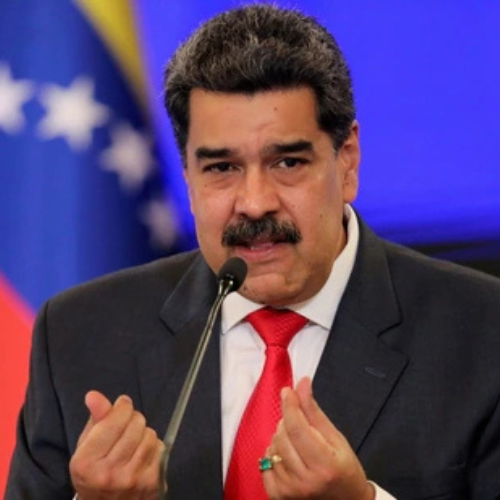The United States has taken a bold step against the allies of Venezuelan President Nicolás Maduro, placing sanctions on 21 more individuals accused of repressing citizens after the country’s controversial presidential election in July. The announcement, made on Wednesday by the U.S. Department of the Treasury, signals Washington’s disapproval of Maduro’s continued grip on power and his government’s actions to silence dissent.
These sanctions target high-ranking officials who are believed to have played a role in the Venezuelan government’s efforts to suppress opposition voices and maintain control following the disputed election. This latest round of penalties adds to a growing list of individuals already sanctioned by the U.S. for their ties to Maduro and their alleged involvement in undermining democracy and violating human rights.
Sanctioned Officials Include Top Leaders
The 21 individuals sanctioned by the U.S. hold influential positions in Venezuela’s government, including heads of security forces and cabinet-level officials. Among them are the chief of the nation’s corrections agency, the director of a major intelligence service, and the minister responsible for overseeing Maduro’s Office of the President. These individuals join a broader list of sanctioned figures, including judges, ministers, and prosecutors, accused of working to protect Maduro’s administration from accountability.
This move follows a pattern of action by the Biden administration to hold Maduro’s allies responsible for the government’s controversial response to the election. In September, similar sanctions were imposed on 16 officials accused of obstructing the vote and committing human rights violations. Despite these measures, many of the individuals targeted by sanctions remain in powerful positions within the Venezuelan government.
Disputed Election at the Heart of the Crackdown
The July 28 presidential election in Venezuela has been widely criticized as unfair and lacking transparency. President Nicolás Maduro declared himself the winner of the election, but his government has refused to release vote tallies to prove this claim. This refusal has raised serious questions about the legitimacy of the election and sparked international concern about the state of democracy in Venezuela.
Venezuela’s Machado Accused of Treason Over US Sanctions Support
Opposition candidate Edmundo González, who represented Venezuela’s main opposition parties, has claimed that he won the election by a significant margin. However, following the vote, González faced increasing threats and legal pressure from Maduro’s government. In September, González left Venezuela for Spain, going into exile after authorities issued a warrant for his arrest. The government accused him of involvement in publishing election results that contradicted Maduro’s victory claim.
The U.S. government has shown strong support for González, officially recognizing him last week as Venezuela’s “president-elect.” This recognition adds further weight to U.S. efforts to challenge Maduro’s rule and support the Venezuelan opposition in its struggle for democratic governance.
Visa Restrictions and Human Rights Concerns
In addition to imposing sanctions, the U.S. announced new visa restrictions on individuals accused of repressing Venezuelans in the aftermath of the disputed election. These restrictions prevent the targeted individuals and their immediate families from traveling to the United States. Although the exact impact of these measures remains unclear, they send a strong message that those responsible for undermining democracy in Venezuela will face consequences on the global stage.
Venezuela’s government, under Maduro, has faced significant international criticism for its handling of dissent and alleged human rights abuses. The sanctions and visa restrictions announced on Wednesday are part of broader efforts by the U.S. to pressure Maduro’s administration to respect democratic principles and human rights.
In response to these sanctions, Venezuelan lawmakers have debated a new bill that would classify economic sanctions as a crime against humanity. If passed, this law would allow the government to prosecute anyone who supports international sanctions against Venezuela. This move is seen as an attempt by Maduro’s government to further silence critics and punish those who back international efforts to hold his administration accountable.
The actions taken by the United States reflect its commitment to supporting democratic values in Venezuela. However, the situation in the country remains deeply concerning, with many of Maduro’s allies retaining power despite the mounting pressure from sanctions and international criticism.


